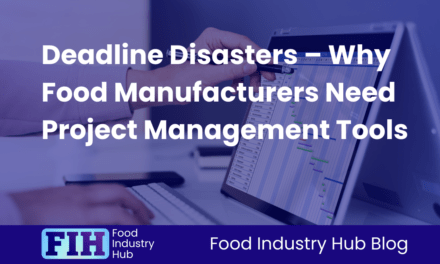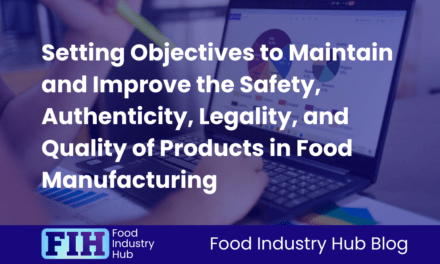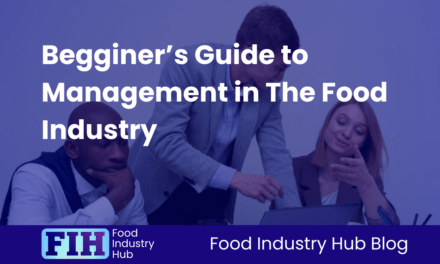Food manufacturing is an ever-changing industry that requires strong commitment and effort from senior management to ensure high quality, safe products are produced. Quality, safety, authenticity and compliance are key factors for success in this sector. To be successful, it is important that senior management demonstrate their genuine commitment to the business through resource investment and ethical practices. This article will discuss how senior management can proactively demonstrate their commitment to food manufacturing in order to ensure high standards are maintained and the business remains viable and competitive.
Defining Senior Management Commitment
Senior management commitment refers to the willingness and obligation of top-level executives to ensure that their company consistently meets or exceeds the standards set in place by regulatory bodies. This means not just complying with regulations but going above and beyond to create a culture of excellence within the organisation.
Proactively demonstrating senior management commitment in food manufacturing involves taking steps such as implementing robust quality control procedures, investing in employee training programs, regularly conducting internal audits, and establishing clear communication channels for reporting issues or concerns. It also requires being transparent with customers about the company’s practices and policies related to food safety.
Ultimately, senior management commitment is about setting an example for every member of the organisation to follow. By prioritising food safety at every level of decision-making, from product design to distribution, companies can build trust with consumers while protecting their reputation and bottom line.
Strategies for Demonstrating Commitment
One way to demonstrate senior management commitment in food manufacturing is by investing in employee training programs. These programs can cover topics such as food safety, quality control, and production efficiency. By providing employees with the tools and knowledge they need to succeed, senior management can signal that they are committed to producing high-quality products.
Another strategy for demonstrating commitment is through regular communication with employees. This can include holding open meetings or one-on-one meetings with staff members. During these conversations, senior management can listen to employee feedback and provide updates on company goals and initiatives. By showing a willingness to engage with employees at all levels of the organisation, senior management can create a culture of transparency and collaboration.
Another effective way for senior management to demonstrate their commitment is by investing in new technology and equipment. This can include upgrading production lines or implementing new software systems that streamline operations. By making these investments, senior management shows that they are committed not only to producing high-quality products but also to staying ahead of industry trends and technological advancements.
Communication and Transparency
Effective communication and transparency are fundamental to demonstrating senior management commitment in food manufacturing. To set the tone for a culture of openness, senior leaders must actively encourage open communication among all employees at every level. This means creating channels for employees to voice their concerns or suggestions without fear of retaliation, such as anonymous feedback systems or regularly scheduled meetings.
In addition to fostering a culture of open communication, senior management should also prioritise transparency when it comes to sharing information related to food safety and quality control. This includes providing regular updates on internal audits, regulatory compliance checks, and any incidents that may impact product safety. By being transparent with employees and customers alike about potential issues or areas for improvement, food manufacturers can build trust with their stakeholders and demonstrate their dedication to producing safe and high-quality products.
It’s important for senior management to lead by example when it comes to communication and transparency. By modelling this behaviour themselves – whether it’s through openly addressing challenges faced by the company or soliciting feedback from employees at all levels – they can inspire others within the organisation to do the same. Prioritising clear communication and transparency is not only essential for meeting regulatory requirements but also vital for building a strong organisational culture that values collaboration and continuous improvement.
Sign-up for the Food Industry Hub Mail Service
We regularly produce new content for food industry professionals, and the Food Industry Hub Mail Service is the best way to stay up to date with the latest additions.
Signup today to be added to the Food Industry Hub mailing list.
Investing Resources
One of the best ways to demonstrate senior management commitment in food manufacturing is by investing in resources. This includes investing in equipment, technology, and people. For instance, senior management can invest money into buying modern equipment that ensures safety and quality standards are met during food manufacturing processes.
Additionally, investing in technology can help streamline production processes while minimising errors and waste. The use of software solutions such as Enterprise Resource Planning (ERP) systems can help manage inventory levels, track product quality control metrics, oversee project timelines and deadlines while ensuring compliance with regulatory requirements.
Investing in people through training programs or hiring experienced personnel shows a commitment to the overall success of the organisation. By offering ongoing education opportunities for employees at all levels of the company from line workers to managers, senior management demonstrates that they value their workforce and strive to create a culture of continuous improvement towards achieving excellence in food safety practices.
Authenticity in Decision-Making
Authenticity in decision-making involves being true to oneself and upholding one’s values while making decisions that impact the organisation. Authentic leaders prioritise honesty and transparency while considering the interests of all stakeholders. The actions taken, and decisions made, must be aligned authentically with the company’s stated values.
If there is any apparent conflict between the management’s actions and the company’s stated commitment to product safety, quality, authenticity, and legality, authenticity in decision-making is degraded. Authenticity in decision-making is a key component of authentic leadership, because the actions and decisions made by an organisation are the manifestation of its leadership. This can be measured through a series of questions, such as: Are leaders’ actions and decisions consistent with their stated values?
Accountability and Commitment to Quality and Food Safety
In the food industry, accountability and commitment to quality and food safety are crucial components of a successful business. It is important for senior management to proactively demonstrate their commitment to ensuring that all products are safe for consumption by consumers. This can be challenged through regular inspections and audits, as well as constant communication with employees at all levels of the organisation.
Senior managers must be held accountable for upholding the stated values of the company. Senior management commitment cannot merely be relegated to a policy statement that is tacked on to a bulletin board. The management must visibly demonstrate its commitment through actions and actions investment of resource. Accountability, integrity and transparency are the hallmarks of food safety. Without these three critical pillars, a company will not be able to operate effectively or sustainably.
In Summary
Demonstrating senior management commitment can seem tricky at first, because a commitment is comparable to an intention – which is difficult to evidence outwardly.
Evidence of senior management commitment becomes apparent as a result of an authentic alignment between the food safety and quality objectives set by the company and the decisions made by senior management – manifested as actions taken, provision of training, allocation of resources, and the way these things are communicated.
Strong expressions of senior management commitment require a proactive stance toward upholding the company’s food safety and quality objectives – especially in the event of a conflict against competing priorities such as revenue generation.














